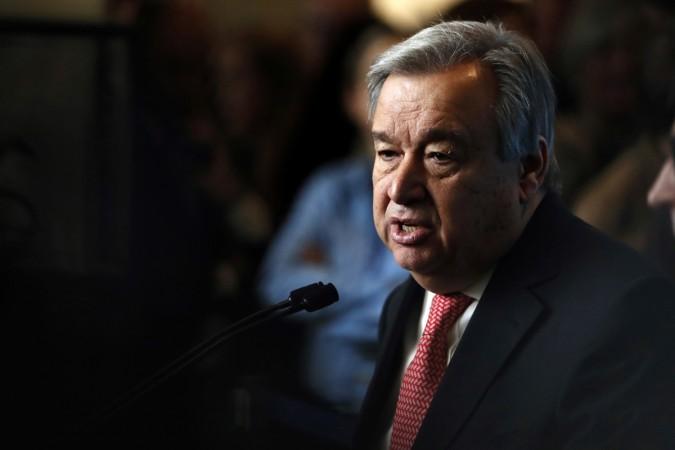
Over 120 countries in the United Nations voted on Friday to adopt the first-even global treaty to ban nuclear weapons. However, India and eight other countries, including Pakistan, US and China, skipped the negotiations that would legally ban atomic weapons.
The negotiations to legally ban nuclear weapons have been going on for over 20 years. The Treaty on the Prohibition of Nuclear Weapons, the first-ever multilateral legally-binding instrument to prohibit nuclear weapons, was adopted on Friday with 122 countries voting in favour of the ban and one country, Netherlands, voting against it while Singapore abstained from voting.
India, along with the nuclear-armed countries of US, Russia, Britain, China, France, Pakistan, North Korea and Israel, skipped the negotiations, PTI reported. The treaty will be open for signatures to all states in September at the UN headquarters. It will come into effect 90 days after being ratified by at least 50 countries.
Over 120 nations had, in October 2016, voted at the UN General Assembly (UNGA) to convene a conference wherein the treaty to prohibit atomic weapons would be negotiated which would eventually lead to a total of elimination of such weapons. However, India had abstained from voting on this UNGA resolution.
India had explained its abstention on the resolution saying that it was "not convinced" that the proposed conference could address the international community's expectation for a comprehensive instrument that would ban nuclear weapons. It had also said that the Conference on Disarmament (CD) in Geneva is the only multilateral disarmament negotiating forum.
India had added that it was in favour of negotiations in the Conference on Disarmament on a Comprehensive Nuclear Weapons Convention that would not only prohibit and eliminate atomic weapons but also provide the benefit of verification, which was important to globally ban and eliminate such weapons.

According to India, the current process did not include the verification aspect. Therefore, India maintained its position in line with its explanation and refused to take part in the negotiations for the treaty.
The treaty prohibits several nuclear-weapon-related activities, like undertaking to develop, test, produce, manufacture, acquire, possess or stockpile nuclear weapons or other nuclear explosive devices. It also prohibits the use or threat of use of these weapons, PTI reported.
Treaty does not provide solution to North Korea's nuclear programme
The Permanent Representatives of the US, UK and France issued a joint statement saying that they "have not taken part in the negotiation of the treaty and do not intend to sign, ratify or ever become party to it...This initiative clearly disregards the realities of the international security environment."
"Accession to the ban treaty is incompatible with the policy of nuclear deterrence, which has been essential to keeping the peace in Europe and North Asia for over 70 years," the statement said adding that the treaty also does not provide any solution to the "grave threat posed by North Korea's nuclear programme."
The UN envoys of the three nations said that a purported ban on nuclear weapons that does not address the security concerns, which make nuclear disarmament necessary, can neither eliminate a single nuclear weapon nor enhance the peace the security of any country or the world.
UN Secretary-General welcomes adoption of treaty

UN Secretary General Antonio Guterres welcomed the adoption of the treaty to ban nuclear weapons. He said that the treaty "represents an important step and contribution towards the common aspirations of a world without nuclear weapons."
"The impetus for the treaty reflects growing concerns over the risk posed by the continued existence of nuclear weapons, as well as awareness of the catastrophic humanitarian consequences that would result if nuclear weapons were ever used again. The treaty represents an important step and contribution towards the common aspiration of a world without nuclear weapons," Guterres said.














